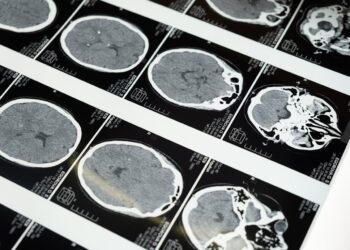- Sleeping for more or less than the optimal duration of 7 to 9 hours is associated with an increased risk of dementia and stroke.
- Brain imaging biomarkers that measure structural changes in the brain using magnetic resonance imaging (MRI) scans can predict the onset of stroke or dementia years before they occur.
- A new study shows that suboptimal sleep duration is associated with an increased presence of brain biomarkers of dementia and stroke in healthy middle-aged individuals.
- This study further underscores the role of suboptimal sleep duration in brain health and the need to improve sleep hygiene.
Experts recommend that adults get between
A new study published in the
Study author Dr. Santiago Clocchiatti-Tuozzo, a postdoctoral fellow at the Yale School of Medicine, noted that these results further support the role of sleep in long-term health.
Dr. Clocchiatti-Tuozzo explained to Medical News Today that, “[b]ecause these magnetic resonance imaging markers of poor brain health are known to precede the occurrence of stroke and dementia by many years, there may be merit in assessing and managing abnormal sleep duration among asymptomatic middle‐aged adults.”
“Both short and long sleep durations may potentially be modifiable risk factors for magnetic resonance imaging markers of poor brain health,” added Dr. Clocchiatti-Tuozzo.
Studies have consistently shown that insufficient or excessive sleep is linked to an
Read the full article here







